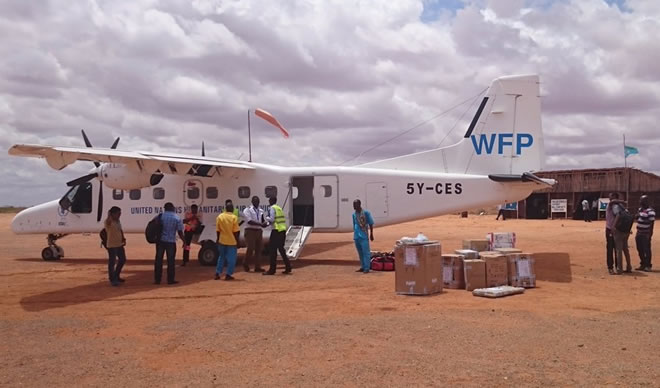by Khadra Yasien Ahmed
Sunday, October 11, 2020

During a time when the world is too caught up with the American presidential elections, The Norwegian Nobel Committee turned our attention to malice long forgotten, hunger.
UN´s World Food Programme (WFP) was awarded the Nobel Peace Price for 2020. The justification was their staunch work during the pandemic, and their mandate at large, which is to end hunger and combat hunger as a weapon of war. Surely, The Nobel Committee has awarded the price to less praiseworthy recipients one could argue, making this years’ price even more deserving. Delivering food to the most deprived and forgotten corners of the world is not an easy task. The WFP have at times delivered food supplies with drones and dropped it off air plains. Other times they have been forced to cooperate with less than democratic groups to get the job done.
There is no famine in a democracy they say. Although a slight exaggeration, there is an element of truth to it. War causes hunger, just like hunger can ignite the flame of war and conflict. Cultivated land is burnt to the ground, and populations are subjugated to hunger as weapon of war. This vicious cycle is present in far too many conflicts today. Hence, without curbing armed conflicts, we will fall short of ever eradicating hunger. It is a great recognition by the committee to acknowledge that hunger must be eradiated if lasting peace is to be achieved. In regions with ongoing conflicts, this must be remembered.
This year’s award is a recognition of the 821 million people who go hungry on a daily basis. With humanitarian disasters in Syria, Yemen, Colombia, South Sudan and Somalia people are not only fleeing war or conflicts; many are in fact fleeing hunger. The COVID-19 pandemic has not made matters easier in countries where food supply was scarce to begin with. Soaring food prices, closed borders and lack of food deliveries have not only made things difficult, it has also made matters pricy. For countries that lack food security, famine is looming. Beasley, who is the head of the WFP, stated once that the world is facing a hunger crisis of biblical proportions. Unfortunately, in certain parts of the world, like Yemen, that is very true. With the locust invasion in East Africa and climate change that is challenging food production, the WFP is under enormous pressure to execute their mandate.
This is a price that acknowledged the important work of WFP when nation states fail. The price was also a tribute to international cooperation and solidarity in accordance with Nansen’s spirit. However, this price is also a critique of leading world countries and their lack of cooperation in solving problems that undermine the dignity of mankind. Not having eradicated hunger despite the creation of the UN 75 years ago, is a failure. This year’s price was not the most shocking one, but a solid choice in a year where top candidates were few and far in between.
Irrespective of the award, WFP still faces many challenges in the countries in which they operate. In far too many countries WFP-deliveries are sold on the open market and misdirected towards criminal groups that hold the food for ransom. Viable solutions can only be reached through strengthening institutional capacity and extensive international cooperation. This price is a reminder of all the work that remains, and a celebration of all that has been achieved under harsh conditions.
Khadra Yasien Ahmed
[email protected]